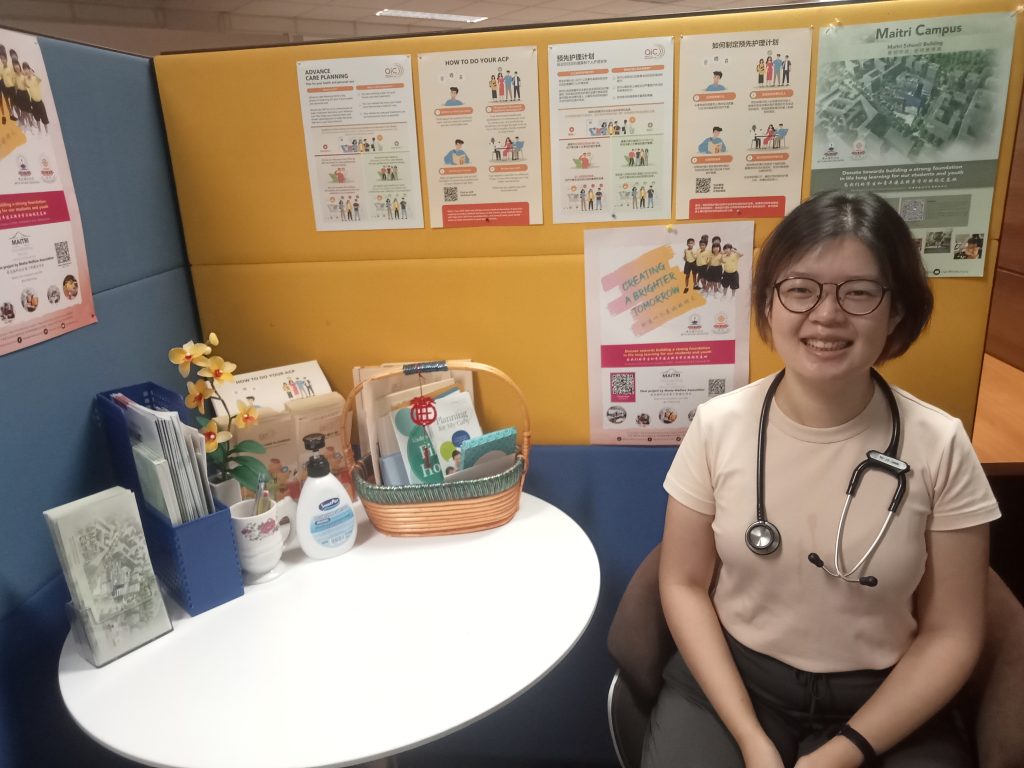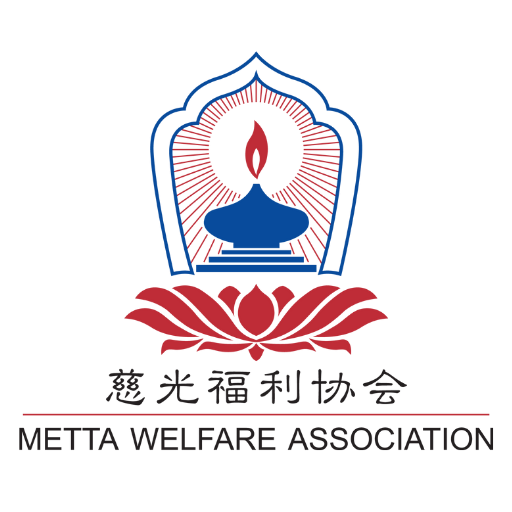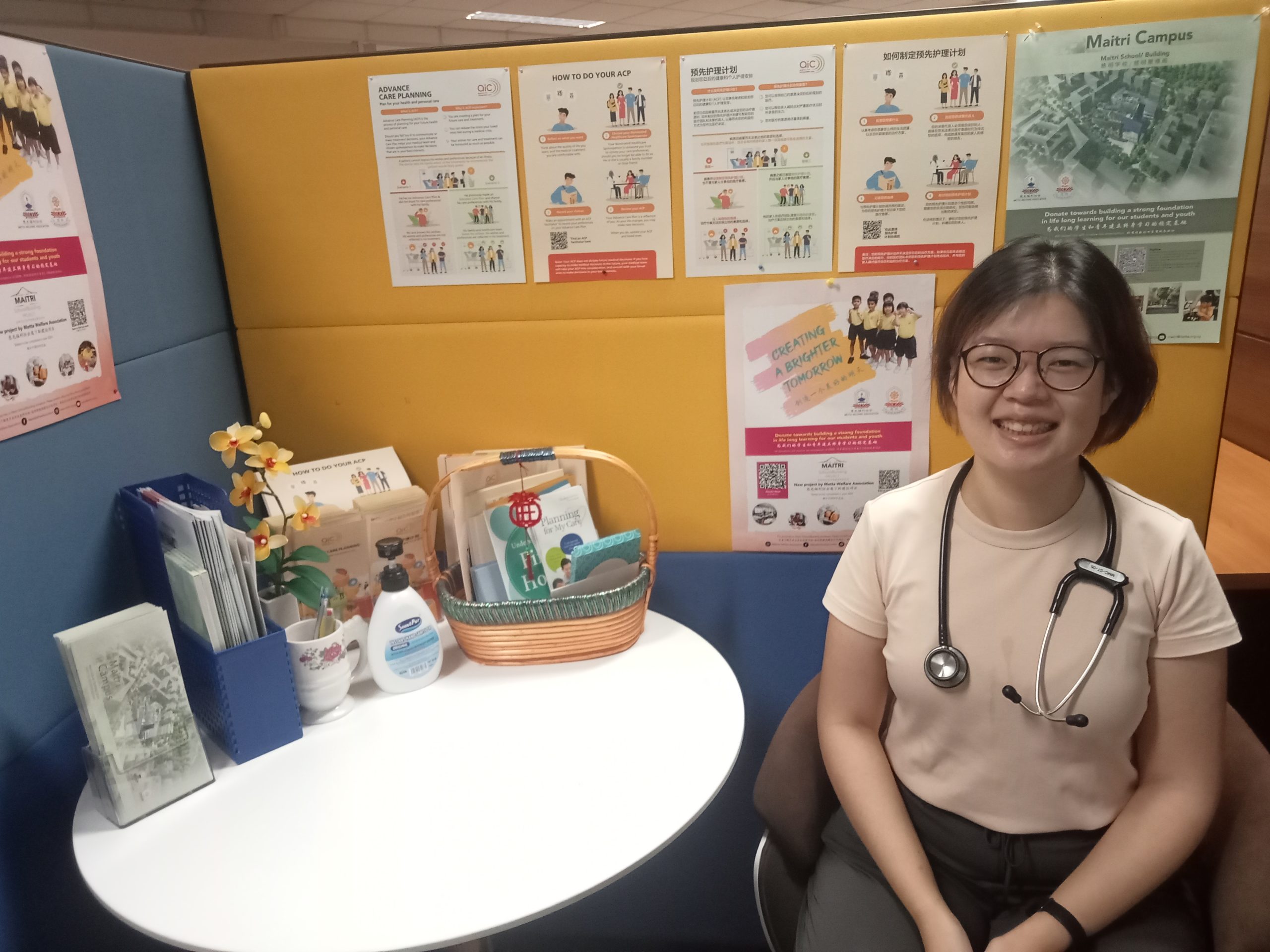
Caregiving for a loved one who is approaching the end of life can be an intense and emotional experience. It takes a lot of strength and willpower to juggle living one’s life while providing full care support to their loved ones. Even the most determined individual may find it challenging to cope in this uphill journey. They would eventually have to deal with loss as a caregiver, as they adjust back into their normal life after their loved ones leave.
In this article, Metta Hospice Care will share a story on the ups and downs of caregiving by two young caregivers.
Let’s hear from our registered nurse, Bee Suan of the Metta Hospice Care team.
“Why hospice care?” And the gleam on Bee Suan’s face tells us that she is honoured to serve her patients and their families. “I adore my job here!”, she replied. “Working in a hospital won’t give you the opportunity to know our patients and their families at a personal level, like how hospice care does”.
Bee Suan has learned new things every day while making her home visits. Learning about their way of life helps her to provide better care options and support to her patients. “You get to understand their perceptions, their likes and dislikes, and small details we might miss when working in a hospital”, she explained. “When your patients feel that you care about them, it genuinely warms their heart”.
Among the many patients whom she worked with, there was one case which stuck her deeply. This happened during her first year with Metta Hospice Care, where she was assigned to provide care for a patient who had advanced cancer. The patient was staying with her elderly husband and her two young adult children.
“Both children were around my age, and it was difficult to see two young women having to leave their jobs and become full-time caregivers for their mother”, shared Bee Suan. Being an empathetic individual, she was determined to help them provide the best care support to their mother.
Caregiving duties for these two young caregivers who lack experience have been a challenge at the beginning. Simple care interventions such as handling morphine can be quite overwhelming for inexperienced caregivers.
To overcome this, Bee Suan conducted caregiver training sessions including ways to understand how to recognise pain and to determine on the type of intervention for the patient, wound care and its management. Seeing how eager and dedicated both caregivers were picking up the skills makes her feel that the training and time spent was worthwhile. “They had become excellent caregivers after training hard for a few months”, she said.
Overtime, she created an indescribable bond with these two caregivers. “Because they are around my age, we discovered similar interest and common topics like learning foreign language and having an interest in K-pop, which created enjoyable conversations between us!” Bee Suan added enthusiastically. “They sometimes get more laid back, play some K-pop music, and just relaxed when I visit for my nursing interventions. After all the effort they put in, it makes me genuinely glad to watch them enjoy a well-deserved break.”
“It is heartwarming to hear how the two young caregivers remain positive and strong throughout the whole journey,” she said. “Through them, I’ve also learnt about staying optimistic in different perspectives.”
She added that we should always keep our face towards the sunshine so that we will not see the shadow. As hospice nurses journeyed with the patients till the end of their lives, they are often put on a roller coaster of emotions. Hence, it is important for nurses to keep their feelings in check while maintaining one’s personal life and well-being.
Bee Suan had journeyed with this family in the last phase of the patient’s life. One Tuesday morning, she received a call from one of the caregivers telling her that their mother has passed away peacefully. Although she shared their grief, she is glad that both caregivers remain strong throughout this difficult time.
Caregiver burnout is a real issue, and she urged caregivers to speak up and seek assistance if necessary. “No one can go through everything alone,” she said. “These two caregivers had remained unfazed and optimistic throughout their journey, and I believe this act of love really admirable.”


